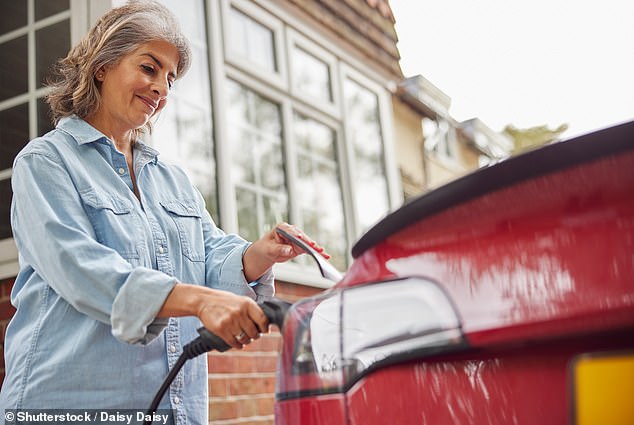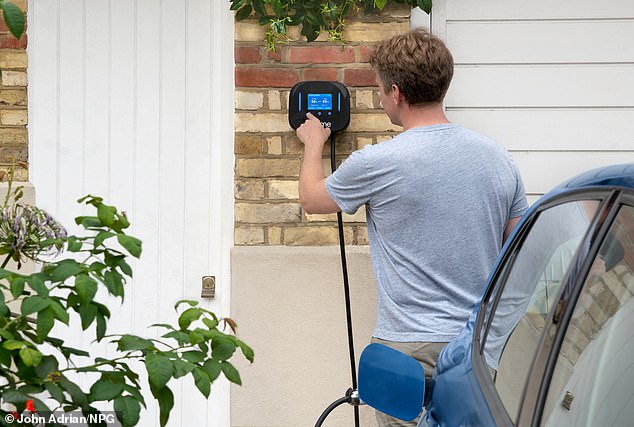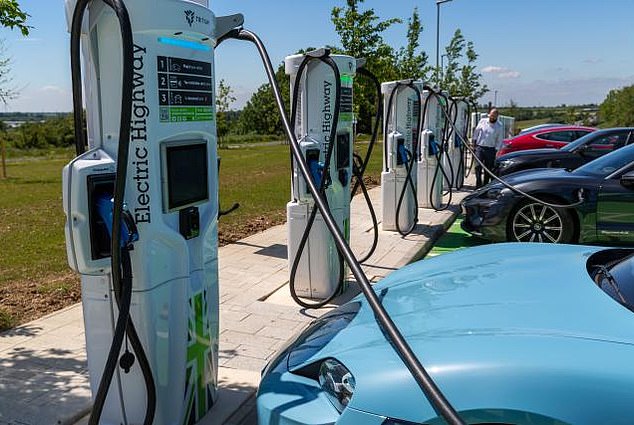Table of Contents
One of the advantages of owning an electric vehicle is that it is often cheaper to charge it than to fill up your car’s gas tank.
And even if you’re already saving money with an EV, it’s always good to be able to maximize those savings and take advantage of cheaper charging deals.
With summer just around the corner and a busy travel season around Britain, here are some quick ways to save money when charging your electric vehicle, whether you plug it in at home or use the public grid.
When you charge with the Gridserve public charging network and pay through the new app, you will receive a 20 percent discount on your charge until October 1.
1. Public charging is on offer in summer
Gridserve, owner of the expanding Gridserve network of electric forecourts, is celebrating the launch of its app by offering users discounted charging rates.
If you pay for public charging through the Gridserve app, you will receive a 20 percent discount on your charging.
The discount can be used at any of Gridserve’s 190 charging points, from petrol stations to motorway services, and can be used at Gridserve’s slow, fast or rapid charger.
The offer is valid until October 1, 2024.
Since 30 percent of EV owners cannot access cheaper home charging, rebates help offset the disadvantage these drivers face.
After the general election, this could change depending on who is in Downing Street, as some leaders have promised to cut VAT on public charge to 5 per cent (from 20 per cent) to bring it in line with domestic charge.

The cost of charging an electric vehicle at home, even during peak times, is about half the price of using the public grid.
2. Domestic top-up at a reduced price: lower standard rates
The standard variable tariff will fall to 22.4p/kWh on 1 July, the lowest price in almost two years.
Electric vehicle drivers who charge at home will be able to enjoy greater savings, even if they do so during peak hours.
But smart charging saves you even more, as you can schedule your car to charge during off-peak hours and take advantage of EV-specific rates.
3. The new EDF EVolve Sept25 tariff has been launched
EDF has just launched a new, cheaper tariff for electric vehicles: the EVolve Sept25 tariff.
The daily electricity rate is the same as the standard variable rate, but the off-peak rate is now 10p lower than the standard variable Direct Debit price.
EVolve Sept25 offers customers five hours of off-peak electricity (12-5am) overnight for home and car – 35 hours of off-peak power per week.
Unlike some tariffs, EVolve is available to drivers with any make or model of electric vehicle or charger.
For an average motorist driving 7,000 miles a year, it will cost £247 a year to charge the EVolve tariff, compared with £1,292 for petrol (based on 36mpg and a petrol price of 145.46p/litre).
EDF promises that the EVolve Sept25 tariff will never mean customers pay more than Ofgem’s price cap, saving £200 a year compared to a standard variable tariff with a standard electricity meter.
4. Ohme and Octopus Go
Intelligent Octopus Go is a smart electric vehicle charging station that works in conjunction with a smart charger such as Ohme’s dynamic wallbox chargers.
Using the Intelligent Octopus Go to charge a typical electric vehicle for 6,800 miles of driving would cost £127.50.
Even if the new standard variable tariff was used for the same mileage, the cost would be £382.50. Petrol, on the other hand, would cost £1,100.
Octopus has also just launched a “discounted price” offer, where EV owners can take advantage of cheaper renewable energy when it is abundant.
During the summer, when the sun is abundant, consider participating in a discounted event and save money.

By charging at home with a smart charger, EV drivers can take advantage of off-peak rates. Smart chargers automatically stop and start charging based on changes in home rates, such as when rates drop overnight because fewer people are using power.
5. Octopus launches a reduced pricing system for public electric vehicles
UK EV drivers can now benefit from cheaper public charging when green energy is abundant with Octopus Electroverse.
The card and app, which gives access to multiple charging networks, launched ‘Plunge Pricing’, which offers EV drivers the chance to charge when cheap renewable energy generation is high and demand is low.
At the moment, wholesale prices can drop substantially. Drivers using Octopus’ Electroverse get discounts for removing excess power from the grid during these sunny and windy times; discounts to date range from 15 to 45 percent per kWh.
Hundreds of drivers have already gone through previous trials, saving an average of £6.50 on a single charge, with a potential annual saving of £250. In future, drivers could even be paid to charge their EV when wholesale prices are negative.
Drivers can take advantage of 7,500 charging stations from brands including Ionity, Osprey and GeniePoint.
Matt Davies, director of Octopus Electroverse, said: ‘This is a huge milestone – for the first time, drivers can charge their vehicles and pay less on the public charging network when green energy is plentiful.
“This isn’t just a run-of-the-mill discount – it’s revolutionising public charging and it’s something that could never be done with petrol. We’re ready to work with more charging point brands to be able to offer this to more people.”
Some links in this article may be affiliate links. If you click on them we may earn a small commission. This helps us fund This Is Money and keep it free to use. We do not write articles to promote products. We do not allow any commercial relationships to affect our editorial independence.


